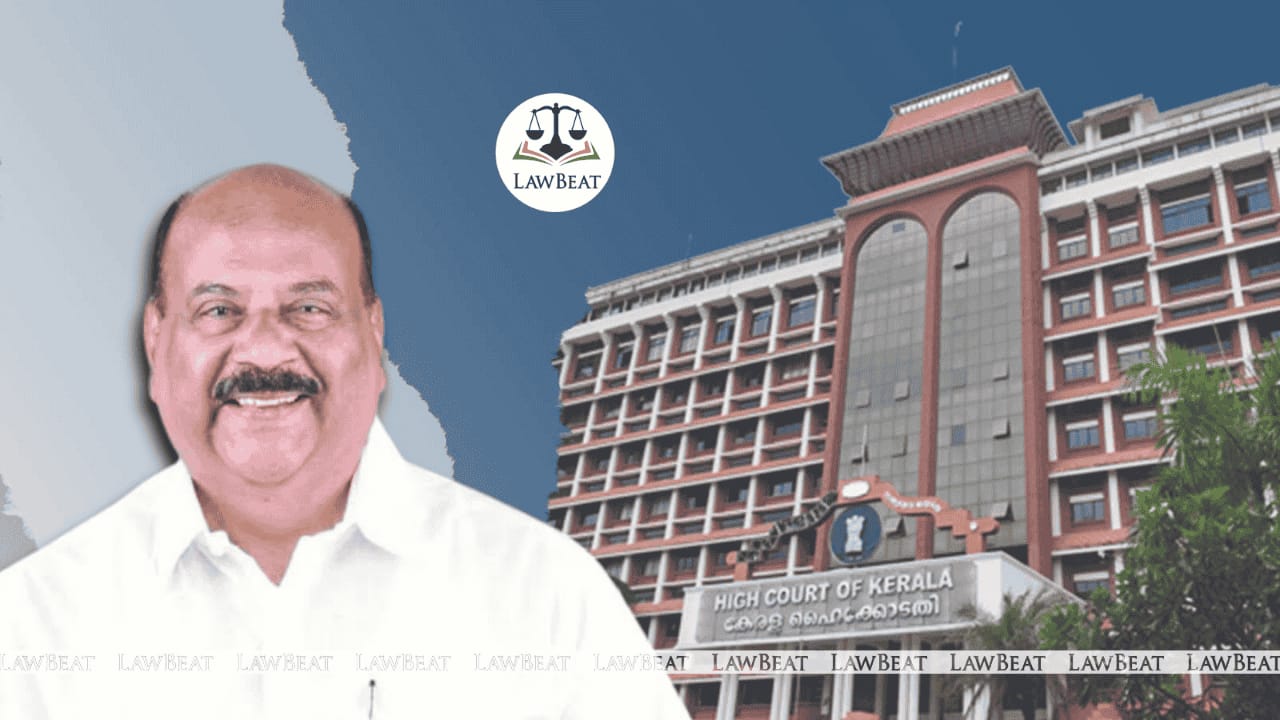Kerala HC Upholds Election of Mani C. Kappen Amid Allegations of Overspending in Election Campaign

The court invoked Winston Churchill’s words on democracy’s foundation, underlining the importance of respecting the electoral choice of voters in the Pala constituency
The Kerala High Court, on November 5, dismissed a petition challenging the election of Mani C. Kappen, representing the United Democratic Front (UDF), as the winning candidate from the Pala constituency in the 2021 Kerala Legislative Assembly elections.
Justice C. Jayachandran, presiding over a single-judge bench, ruled against the petitioner, C.V. John, who had alleged that Kappen’s campaign expenditures exceeded the statutory limits under the Representation of the People Act, amounting to a corrupt practice. The petitioner, an independent candidate in the same race, alleged that Kappen’s campaign expenses had surpassed the allowable limit of ₹30,80,000. The court, however, found that the petitioner had failed to provide convincing evidence that Kappen’s actual expenditures exceeded the statutory cap.
The petitioner accused Kappen, the 1st respondent/returned candidate, of non-compliance with expenditure reporting under the Representation of the People (R.P.) Act. John based his argument on expenditure reports obtained through the Right to Information (RTI) Act, asserting that an unreported amount of ₹3,34,400 for booth expenses, when combined with documented expenses, would exceed the legal limit. According to the petitioner, this discrepancy highlighted inaccuracies in the accounting records, alleging a violation of Section 77(1), which mandates that candidates “shall” keep a separate and accurate account of all election expenditures.
In response, Kappen contended that the disputed amount was an advance distributed to booth agents for various expenses incurred up to the election day. It was argued that these advances did not represent actual expenditures and therefore did not need to be included in the expense report. Furthermore, he maintained that expenditures visible to observers were recorded and did not exceed statutory limits.
In a powerful reflection on democratic values, the court invoked a famous quote by Winston Churchill: “At the bottom of all tributes paid to democracy is the little man, walking into a little booth, with a little pencil, making a little cross on a little bit of paper—no amount of rhetoric or voluminous discussion can possibly diminish the overwhelming importance of that point.” (House of Commons, 31.10.1944). The court used this quotation to underscore the importance of upholding electoral integrity, emphasising that thorough and accurate expense reporting is critical for maintaining public confidence in democratic processes, though minor discrepancies without material impact do not warrant nullifying an election.
The court noted that election law requires proof beyond a reasonable doubt to substantiate allegations of corrupt practices. The court observed that the petitioner did not allege that any specific expenditure by the candidate was omitted from the register of day-to-day election expenses, Ext.X1, maintained by the candidate, Kappen. Instead, the petitioner argued that an item recorded in Ext.X1 should be combined with the total observed expenditures in, Ext.X3, the shadow observation register maintained by the accounting team as regards the day-to-day election expenditure, a claim the court found flawed. “Therefore, clubbing of the 'booth expenses' as reflected in Exts.X1 and X3 cannot be sought for, only for the reason that an expenditure under the head booth expenses is reflected in Ext.X3 as well,” the court stated, rejecting the contention and ruling against the election petitioner.
The court further observed that, for an election to be declared void under Section 100(1)(d)(iv), the petitioner must demonstrate that the alleged discrepancies in reporting materially affected the election’s outcome. In this case, the court found that the petitioner did not provide any evidence or pleadings to prove that the errors in accounting had a material impact on the election result. The court said, “Section 100 deals with the ground for declaring the election to be void. Section 124 deals with minor corrupt practice. Section 124(4) provides that the making of any return of election expenditure which is false in any material particular or the making of declaration verifying any such return amounts to a minor corrupt practice. There also, contravention of Section 124(4) was not treated as an act, which would vitiate the election per se, but would do so, only if it materially affects the election.”
Finding the absence of evidence that any discrepancies in expenditure accounts materially affected the election result, the court dismissed the petition, stating that “the election of the 1st respondent/returned candidate to the Kerala Legislation Assembly from Pala Constituency is not liable to be declared void.”
Cause Title: CV John v. Mani C Kappen [EL.PET.NO.9 OF 2021]
Appearances : CV John was represented by Advocate Sunil Cyriac, while Kappen’s legal team included Senior Advocate T Krishnanunni, along with Advocates Deepu Thankan, Lakshmi Sreedhar, Ummul Fida, and Thareeq Anver K. The Court appointed Advocate P Fazil as Advocate Commissioner in this matter.
